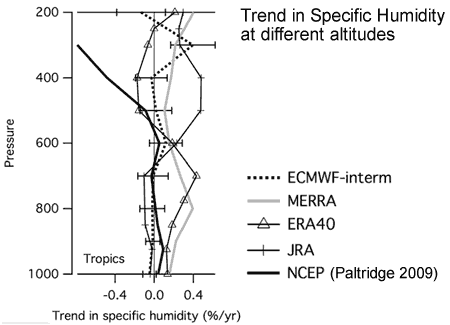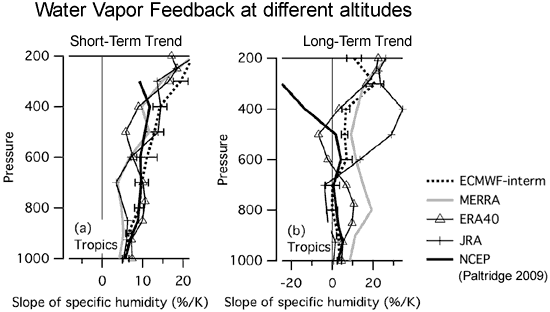 Arguments
Arguments
 Software
Software
 Resources
Comments
Resources
Comments
 The Consensus Project
The Consensus Project
 Translations
Translations
 About
Support
About
Support


Latest Posts
- Skeptical Science New Research for Week #7 2026
- These key strategies could help Americans get rid of their cars
- Fact brief - Can nearby solar farms reduce property values?
- Sea otters are California’s climate heroes
- 2026 SkS Weekly Climate Change & Global Warming News Roundup #06
- Skeptical Science New Research for Week #6 2026
- The future of NCAR remains highly uncertain
- Fact brief - Can solar projects improve biodiversity?
- How the polar vortex and warm ocean intensified a major US winter storm
- 2026 SkS Weekly Climate Change & Global Warming News Roundup #05
- Help needed to get translations prepared for our website relaunch!
- Skeptical Science New Research for Week #5 2026
- Climate Variability Emerges as Both Risk and Opportunity for the Global Energy Transition
- Fact brief - Are solar projects hurting farmers and rural communities?
- Winter 2025-26 (finally) hits the U.S. with a vengeance
- 2026 SkS Weekly Climate Change & Global Warming News Roundup #04
- Skeptical Science New Research for Week #4 2026
- WMO confirms 2025 was one of warmest years on record
- Fact brief - Do solar panels release more emissions than burning fossil fuels?
- Keep it in the ground?
- 2026 SkS Weekly Climate Change & Global Warming News Roundup #03
- Skeptical Science New Research for Week #3 2026
- Climate Adam - Will 2026 Be The Hottest Year Ever Recorded?
- Fact brief - Does clearing trees for solar panels release more CO2 than the solar panels would prevent?
- Where things stand on climate change in 2026
- 2026 SkS Weekly Climate Change & Global Warming News Roundup #02
- Skeptical Science New Research for Week #2 2026
- UK renewables enjoy record year in 2025 – but gas power still rises
- Six climate stories that inspired us in 2025
- How to steer EVs towards the road of ‘mass adoption’
Archived Rebuttal
This is the archived Intermediate rebuttal to the climate myth "Humidity is falling". Click here to view the latest rebuttal.
What the science says...
|
To claim that humidity is decreasing requires you ignore a multitude of independent reanalyses that all show increasing humidity. It requires you accept a flawed reanalysis that even its own authors express caution about. It fails to explain how w |
Water vapor provides the most powerful feedback in the climate system. When surface temperature warms, this leads to an increase in atmospheric humidity. Because water vapor is a greenhouse gas, the increase in humidity causes additional warming. This positive feedback has the capacity to double the initial surface warming. So when temperatures rise, we expect humidity to also increase. However, one study using weather balloon measurements found decreasing humidity (Paltridge et al 2009). To get to the truth of the matter, the full body of evidence regarding humidity is perused in a new paper Trends in tropospheric humidity from reanalysis systems (Dessler & Davis 2010).
To give an overview of humidity trends, Dessler and David compare the results from Paltridge's 2009 paper to a number of other reanalyses of humidity. Figure 1 shows the trend in specific humidity from 1973 to 2007 over the tropics. The Paltridge reanalysis (thick black line) shows considerable divergence in the upper troposphere, with a strong negative trend while the other reanalyses all give consistent results, both with each other and theoretical expectations.

Figure 1: Various reanalyses showing the trend in specific humidity from 1973 to 2007 in the tropics (Dessler 2010 also looks at the Northern and Southern extra-tropics - only the tropic data is shown here for simplicity and as it shows the greatest contrast between Paltridge 2009 and the other reanalyses).
To gain more insight into the nature of the observed water vapor feedback, Dessler and Davis examine the relationship between humidity and surface temperature. They plot specific humidity directly against surface temperature - this gives a measure of the amount of water vapor feedback. They compare the short-term trend in water vapor feedback (under 10 years) to the long-term trend (greater than 10 years) for the 5 different reanalyses:

Figure 2: Short-term (a) and Long-term (b) plots of the slopes of the regression between specific humidity and surface temperature, in the tropics. Trends are divided by the average specific humidity over the entire time period, so they are expressed in percent per degree K.
For the short-term trends, all five reanalyses produce consistent results, with surface warming associated with increasing humidity (eg - positive water vapor feedback). However, there is poorer agreement in the long-term trends. The Paltridge 2009 reanalysis is a distinct outlier, with long-term and short-term trends going in opposite directions, unlike the results from the other studies.
This leads to an interesting question: could water vapor feedback be opposite over short and long-term time scales? There is no theory that can explain how short-term feedback could be positive while long-term feedback is negative. The water vapor response to a climate fluctuation with a time scale of a few years (e.g., ENSO) should be about the same as for long-term warming.
Long-term positive feedback is confirmed by several independent sources. An analysis of long-term measurements of upper tropospheric water vapor shows a positive water vapor feedback in 22 years of satellite data (Soden et al 2005). In addition, analysis of long-term paleoclimate records is also inconsistent with a negative long-term water vapor feedback (Köhler et al 2010).
So why does Paltridge 2009 show decreasing humidity? The authors of Paltridge 2009 themselves point out the well-documented problems with radiosonde humidity observations in the upper troposphere. Comparisons of Paltridge 2009 with satellite measurements (NASA’s Atmospheric Infrared Sounder - AIRS) find the Paltridge 2009 reanalysis has large biases in specific humidity in the tropical upper troposphere. Additionally, Paltridge 2009 doesn't show any large increase in specific humidity during the 1998 El Niño. Direct measurements indicate the tropical atmosphere does indeed moisten during El Niño events and such moistening is seen in the other reanalyses.
Two of the newer reanalyses shown in the figures above, MERRA and ECMWF-Interim, correct for well documented biases introduced by changes in the observing system. These newer reanalyses are in better agreement with theory, other reanalyses and independent observations.
To claim that humidity is decreasing requires you ignore a multitude of independent reanalyses, including newer ones with improved algorithms, that all show increasing humidity. It requires you accept a flawed reanalysis that even its own authors express caution about. It fails to explain how we can have short-term positive feedback and long-term negative feedback (indeed there is no known mechanism that can explain it). In short, to insist that humidity is decreasing is to neglect the full body of evidence.
Intermediate rebuttal written by John Cook
Update July 2015:
Here is a related lecture-video from Denial101x - Making Sense of Climate Science Denial
Updated on 2016-10-26 by pattimer.
THE ESCALATOR

(free to republish)
























































